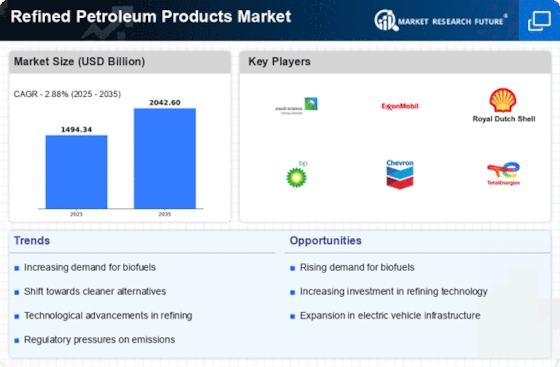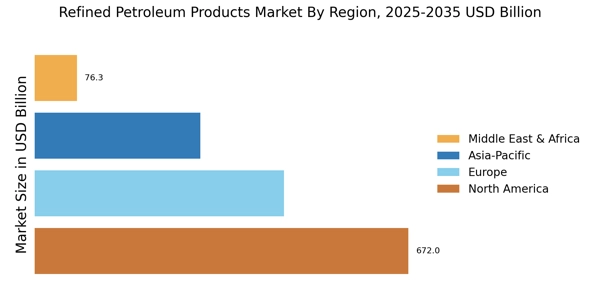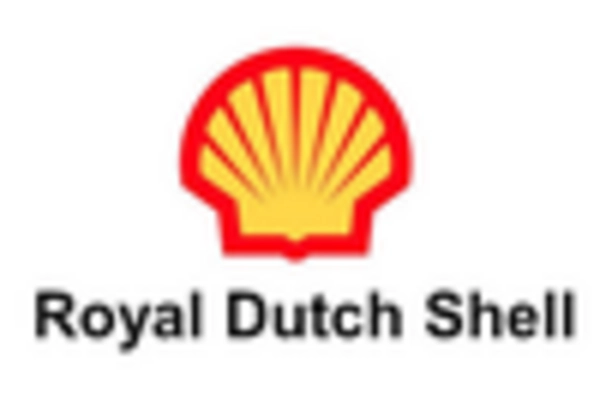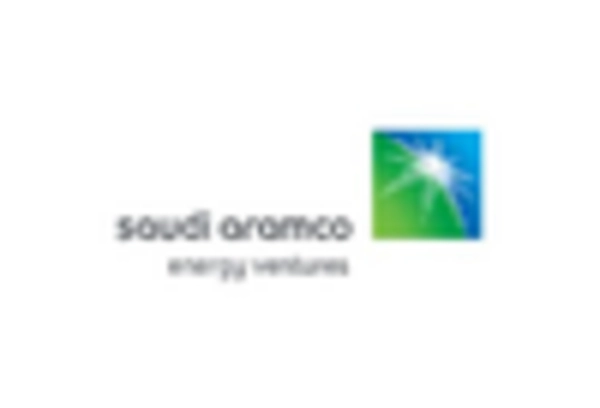Rising Global Energy Demand
The rising The Refined Petroleum Products Industry. As economies continue to grow, the need for energy-intensive products, including refined petroleum, is expected to increase. The International Energy Agency projects that global energy consumption will rise significantly by 2030, with petroleum products remaining a vital component of the energy mix. This trend is particularly pronounced in developing regions, where industrialization and urbanization are driving energy needs. Consequently, the refined petroleum products sector is likely to experience robust growth as it seeks to meet the escalating energy demands of various sectors, including transportation, manufacturing, and residential.
Fluctuating Crude Oil Prices
Fluctuating crude oil prices are a significant factor influencing the Refined Petroleum Products Market. The volatility in crude oil prices affects the cost structure of refining operations, impacting profit margins for refiners. In 2025, the market is likely to experience continued price fluctuations due to geopolitical tensions, supply chain disruptions, and changes in production levels by major oil-producing countries. These fluctuations can lead to uncertainty in the market, prompting refiners to adopt more flexible pricing strategies. Additionally, the relationship between crude oil prices and refined product prices remains critical, as refiners must navigate these dynamics to maintain competitiveness and profitability in an ever-evolving market landscape.
Increasing Demand for Transportation Fuels
The demand for transportation fuels remains a primary driver in the Refined Petroleum Products Market. As urbanization accelerates, the need for efficient transportation solutions grows. In 2025, the consumption of gasoline and diesel is projected to rise, driven by the increasing number of vehicles on the road. This trend is particularly evident in emerging economies, where vehicle ownership is expanding rapidly. The International Energy Agency indicates that transportation fuels account for a substantial portion of refined petroleum products, highlighting their critical role in the market. Consequently, the industry is likely to experience sustained growth as it adapts to meet the rising demand for cleaner and more efficient fuels.
Technological Innovations in Refining Processes
Technological innovations play a pivotal role in shaping the Refined Petroleum Products Market. Advances in refining technologies, such as hydrocracking and catalytic reforming, enhance the efficiency and yield of petroleum products. These innovations enable refiners to produce higher-quality fuels while minimizing waste and emissions. In 2025, the industry is expected to benefit from ongoing research and development efforts aimed at optimizing refining processes. The integration of digital technologies, including artificial intelligence and data analytics, further streamlines operations and improves decision-making. As a result, refiners are likely to achieve greater operational efficiency, which could lead to increased profitability and competitiveness in the market.
Regulatory Frameworks and Environmental Policies
Regulatory frameworks and environmental policies significantly influence the Refined Petroleum Products Market. Governments worldwide are implementing stricter emissions standards and promoting cleaner fuels to combat climate change. For instance, the introduction of low-sulfur fuel regulations has compelled refiners to invest in advanced technologies to meet compliance. This shift not only affects the production processes but also drives innovation within the industry. As of 2025, the market is witnessing a transition towards more sustainable practices, with an increasing focus on biofuels and alternative energy sources. These regulatory changes are likely to reshape the competitive landscape, compelling companies to adapt their strategies to align with evolving environmental standards.

















